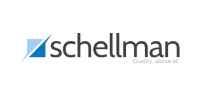Services
Services
Payment Card Assessments
Payment Card Assessments
Federal Assessments
Federal Assessments
Healthcare Assessments
Healthcare Assessments
Penetration Testing
Penetration Testing
Crypto and Digital Trust
Crypto and Digital Trust
Schellman Training
Schellman Training
Sustainability Services
Sustainability Services
AI Services
AI Services
About Us
About Us
Leadership Team
Leadership Team
Corporate Social Responsibility
Corporate Social Responsibility
Careers
Careers
Strategic Partnerships
Strategic Partnerships





